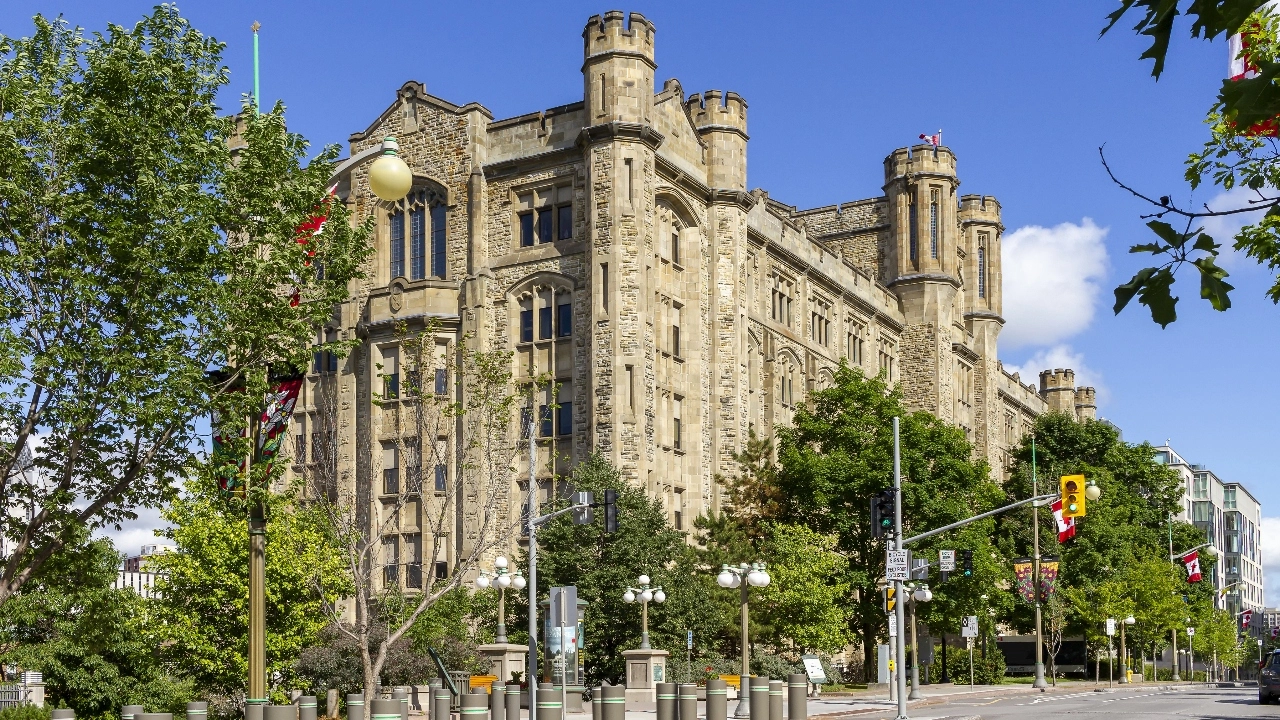New York marijuana retailers recorded roughly $150 million in sales last year, nearly $300 million less than estimates and far shy of the promised multibillion-dollar state market.
At least part of the reason for the state’s slow rollout of adult-use cannabis was a 2022 lawsuit that challenged the Marihuana Regulation and Taxation Act’s social justice initiatives, which were intended to help diversify the marijuana industry and undo harms created by the war on drugs.
That suit, which has prompted a nationwide reevaluation of social equity programs, is one of a series of constitutional challenges that claim prioritizing state residents for cannabis business licenses violates the U.S. Constitution’s dormant commerce clause.
At least six such lawsuits – filed in California, New York, Washington state and, most recently, Maryland – involve either Jeffrey Jensen or Justyna Jensen, a white couple from Pasadena, California, who unsuccessfully applied for a retail license in that city in 2019, according to municipal records.
Reached via phone, Jensen declined to comment to MJBizDaily.
“I don’t do press,” he said.
The Jensens did not reply to a subsequent email seeking comment.
Regulators in the states where the Jensens have sued declined to comment on the cases, citing the pending litigation.
Profound impact of lawsuits
It’s unclear if the Jensens’ motivation for filing the suits is the constitutional question or merely a tactic to obtain licenses.
But the lawsuits’ impact has been profound – possibly nowhere more so than in New York, where the rollout of adult-use marijuana sales has been a “disaster,” Gov. Kathy Hochul said in January.
In addition to delaying market launches, the Jensen-involved lawsuits also have forced lawmakers and regulators to reevaluate social equity programs entirely, observers told MJBizDaily.
“The significant delays created by these lawsuits have made realizing the vision of social equity almost impossible,” said Hirsh Jain, a Los Angeles-based attorney and principal of consulting firm Ananda Strategy.
That’s in large part because less-capitalized small businesses simply don’t have the resources to delay operations while lawsuits wind their way through the courts.
Setting aside the irony of a white couple challenging laws intended to boost minority participation in the regulated marijuana industry, the lawsuits and resulting chaos also fulfill grim predictions from law professors and legal experts.
They warned that well-intended social equity laws favoring local residents risked constitutional challenges citing the dormant commerce clause – a prophecy first fulfilled in August 2022, when the U.S. 1st Circuit Court of Appeals struck down a residency requirement in Maine.
A familiar M.O.
New York legalized adult-use marijuana in March 2021 through the Marihuana Regulation and Taxation Act (MRTA), and the state began accepting business license applications the following year.
But before the first permits were issued in fall 2022, a company called Variscite NY One sued the state of New York.
Variscite, which is 51% owned by Michigan resident Kenneth Gay, was denied a license because Gay did not have a marijuana conviction in New York, the suit alleged.
Though Jeffrey Jensen’s name did not appear in the initial complaint, records indicated that the California-based attorney owned the other 49% of Variscite NY One, NY Cannabis Insider reported.
The suit paused the licensing process entirely in key regions of that new market, including Brooklyn, New York City’s most populous borough.
The legal challenge also created significant uncertainty – among investors as well as would-be licensees – at a key time, according to Axel Bernabe, who was then chief of staff for the New York Office of Cannabis Management.
“It created confusion and slowed capital getting in to the licensees who were supposed to be in a pole position,” he , told MJBizDaily.
“It shook people’s faith in the process, and it pulled resources away from a brand-new agency that now has to focus on fighting a lawsuit when there was other work the agency should be doing.”
But the playbook was not new.
The Variscite lawsuit in New York was similar to a February 2022 lawsuit filed in federal court in California to challenge Sacramento’s social equity laws on the same basis.
In court filings, Gay also was named as a shareholder for an operation denied a license because he did not meet residency requirements – though this time the company was called Peridot Tree.
And after the suits in New York were filed, a similar lawsuit against the city of Los Angeles followed in November 2022.
That suit has “certainly had a chilling effect” in Los Angeles, where the Department of Cannabis Regulation has had to move carefully when “opening new application windows for social equity verification, because it could open them up to litigation,” Meital Manzuri, managing partner at L.A.-based Manzuri Law, told MJBizDaily via email.
Meet the Jensens
Jeffrey Jensen’s current reputation as a sort of reverse social justice warrior might seem like a departure from his first foray into cannabis, when he declared that he “cares deeply about social justice.”
In 2019, the Jensens were a self-described “local, highly educated Pasadena couple” that “assembled (an) all-star team of operators” in Emerald Pharms Pasadena, which unsuccessfully applied for one of a handful of highly coveted marijuana retail permits in the Southern California city.
Pasadena, the Emerald Pharms Pasadena application noted, was committed to “rectifying some of the damage done by the ‘war on drugs’ waged against our own citizens.”
According to the application package, the Jensens were minority partners in an ownership group that included cannabis industry powerhouses CannaCraft and Cookies Real Estate, which currently operates retail stores under that iconic brand name across the United States.
The couple emphasized their deep roots in Pasadena, where they were married in the local courthouse and their children attended public school.
A brief bio of Justyna Jensen began with her childhood in Soviet Union-dominated Poland, from which she emigrated in 2001, and detailed how she paid her way through a California business school by cleaning houses.
As for Jeffrey Jensen, he left a “promising career in engineering” to teach math at a low-income school in South Los Angeles, where he “observed firsthand the disproportionate enforcement of drug laws against minority communities,” according to the application.
The Emerald Pharms application was one of 122 submitted.
In June 2019, Pasadena awarded licenses to the top six scoring applications, including one controlled by L.A.-based multistate marijuana operator MedMen Enterprises
The Emerald Pharms application was scored 37th.
March of lawsuits
Numerous problems are contributing to New York’s tortured rollout of legal marijuana.
Those include a rampant and audacious illicit market that’s undermining legal stores as well as other unrelated legal challenges to New York’s Conditional Adult-Use Retail Dispensary (CAURD) program.
Still, the Jensens are playing a role, observers said.
In a settlement approved in May 2023, New York’s Office of Cannabis Management agreed to give NY Variscite One a retail permit if Gay dropped his challenge.
But that fall, companies that were formed in November 2023 and also had the word “Variscite” in their names filed fresh lawsuits against the state during the just-opened application window.
Though Gay is not involved with those companies, they are also 49% owned by Jensen, according to court records.
Following those filings, another challenge appeared in December 2023 in Washington state, this one filed by Peridot Tree WA.
Until this year, Justyna Jensen was not visibly involved in the lawsuits challenging the social equity laws.
That changed on Jan. 26, when Justyna Jensen became the lead plaintiff in a lawsuit filed against the Maryland Cannabis Administration.
In her suit, Justyna Jensen claimed state officials rejected her application for a social equity application in December 2023.
Her suit claims she fulfilled “all requirements for a social equity applicant except the unconstitutional Maryland residency requirement.”
The lead counsel in her suit, according to court records, is Jeffrey M. Jensen.
Increasing success
Maryland is an attractive target for a lawsuit seeking a cannabis business license, in part because that state – unlike California or New York – caps the number of permits issued.
At the same time, legal observers pointed out that Maryland’s “residency requirement” is more narrowly framed: One qualification is having attended a college in the state with a certain number of low-income students.
In any event, the Jensens’ widening legal crusade demonstrates how “the Dormant Commerce Clause has increased in prominence as a significant legal question in the state-regulated cannabis industry,” Tommy Tobin, a Seattle-based counsel at the Perkins Coie law firm and a lecturer at UCLA School of Law, told MJBizDaily via email.
“It is not surprising that additional lawsuits would arise, particularly in the social equity license context,” Tobin added.
“Courts have repeatedly held that states cannot burden interstate commerce in this way.”
More recently, federal judges have greeted the Jensens’ suits with skepticism.
In the latest Variscite suit in New York, a judge ruled that the dormant commerce clause doesn’t apply to cannabis.
But damage to social equity programs and fledgling markets already has been done.
“The increasing success of these lawsuits across the country in delaying licensing processes should prompt a reevaluation of the social equity frameworks that have been adopted by states thus far,” Ananda Strategy’s Jain said via text.
States and cities should pursue “more legally defensible frameworks that also help ensure equity and diversity in a state’s cannabis market,” he added.
Chris Roberts can be reached at chris.roberts@mjbizdaily.com.





